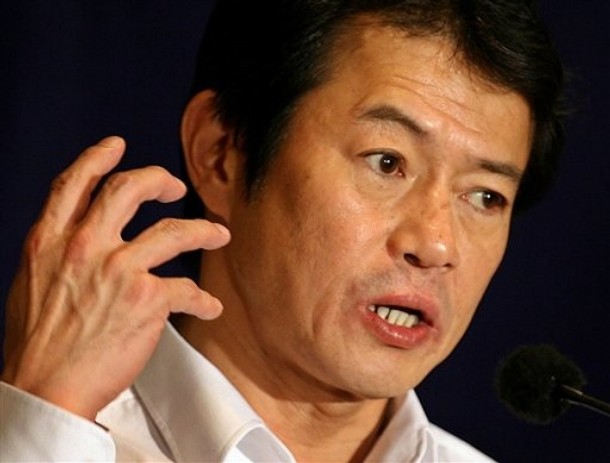FEATURE: Hangover for Japan's government after "drunk" minister quits
 Tokyo - The Japanese public has over the years got used to the occasionally embarrassing escapades of its politicians.
Tokyo - The Japanese public has over the years got used to the occasionally embarrassing escapades of its politicians.
But the performance of Finance Minister Shoichi Nakagawa at a weekend press conference left even staunch government supporters speechless.
The 55-year-old appeared utterly drunk as he met the international press during the final day of the G7 meeting in Rome and started to mumble into the microphone.
He later attempted to excuse his excruciating performance, saying it was a combination of exhaustion, possibly aggravated by having taken too much cold medicine.
Nakagawa insisted he had only had a sip of alcohol and wasn't drunk in the slightest, but failed to convince his colleagues, and was forced to resign on Tuesday.
In earlier, pre-television days Nakagawa may have been able to escape unpunished, but viewers in Japan were treated to endless re- runs of his embarrassing performance.
The minister appeared as if he would fall asleep at any moment and he had trouble constructing coherent sentences when answering reporters' questions.
At one point he even tried to answer a question addressed to the governor of Japan's central bank - with his head drooping and his eyes shut.
Nakagawa's party colleagues and former prime minister Yoshiro Mori found the performance - where the minister was representing Japan on the international stage - less than amusing and immediately concluded that Nakagawa's stupor was alcohol-induced.
"Since I know that he likes to drink I have recommended to him previously to be more careful with his alcohol intake," Mori was quoted as saying.
But Mori himself has more his own brushes with embarrassment. During his short tenure as prime minister from 2001 to 2003, he suggested that childless women should be barred from receiving social security payments once they retired.
In Japan, it is often conservative politicians who hit the headlines with such off-the-cuff remarks.
For example, a former public health minister once referred to women as "birth machines."
Even current Prime Minister Taro Aso once insulted pensioners when he accused them of constantly visiting their physicians instead of keeping themselves fit and healthy.
Nakagawa's resignation, however, has dealt another devastating blow to Aso's already beleaguered administration, coming as it does in the midst of Japan's worst economic crisis since 1945.
"The Aso government is at the end," a representative of Aso's Liberal Democratic Party, which has ruled Japan almost constantly for 50 years, was quoted as saying on Tuesday by local media.
According to latest opinion polls less than 15 per cent back Aso as prime minister, while more than 70 per cent are opposed to his government.
Aso's policies to tackle the financial and economic crisis are seen as insufficient, confused and belated.
There is already speculation that his party might replace him before upcoming parliamentary elections this autumn.
The party voted Aso into office in September last year expecting he would call a fresh election to take advantage of his high "honeymoon" poll ratings.
But Aso didn't heed this strategy, and his star has been on the wane ever since. The Nakagawa affair might prove the final nail in the coffin for his government.
For the Democratic Party of Japan (DPJ), the country's biggest opposition party, the bad news is good news.
The DPJ has for some time been eying its best opportunity yet to displace the LPD from power at the coming election.
"Japan is ready for a revolution," said Jasper Koll, director of Tantalon Research Institute in Tokyo.
Perhaps significantly, US Secretary of State Hillary Rodham Clinton met with opposition leader Ichiro Ozawa during her recent visit to Tokyo. (dpa)